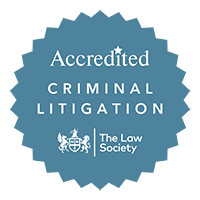Housing Law
Our Housing Solicitors have a proven track record in winning cases over many years with their extensive knowledge and experience. Our specialist housing team provides expert advice and representation in several areas including but not limited to:
Homelessness
We understand homelessness is very stressful and an urgent issue which needs to be dealt expeditiously. Our expert team specialises in representing clients facing homelessness or already street homeless and we provide advice with regards to the following:
Advice on making a homeless application
Advice on prevention and relief duties
Challenging the local authority’s decisions under section 184 of the Housing Act 1996 (as amended)
Section 202 of the Housing Act 1996 (as amended) reviews with regards to suitability
Challenging intentional homelessness decisions
Advice on allocation of housing
Section 204 of the Housing Act 1996 (as amended) appeals in the county court
Help with approaching Social Services (housing aspect)
Delay in reaching decisions
Judicial Reviews
We are here to help you with any of the above and to assist you in securing accommodation to fit your individual requirements.
Defending possession proceedings
Before landlords can proceed with repossession of their homes, they have to follow certain procedure. We are here to provide advice on what landlords must do to follow the correct legal procedure. Also possession proceedings can be commenced for various reasons. The landlords have to serve an eviction notice and then can proceed to obtaining a possession order once the notice expired.
Landlords cannot evict you without going through the correct legal procedures or enter the property without your permission or harass you.
Our housing team is here to advise you on possession procedures and how to defend the possession proceedings. No matter how stressful this situation can be, we will defend your rights and obtain the best possible outcome for you.
First step in eviction process is to give notice. If your landlord decides to start possession proceedings against you, first stage is to serve an eviction notice. Your landlord may serve the eviction notice if you are in rent arrears, involved in anti-social behaviour, sub-letting the property and/or because of other breaches of the tenancy. Once the notice expires, it depends on whether you are served with a section 8 or section 21 notice, your landlord can proceed to issuing a claim for possession in court.
Once the claim is received, if it is section 21 notice that was given, you will have 14 days to file a defence, if any. The 14-day time limit is a strict time limit. If the defence is filed later than 14 days, the Judge may make a possession order, so it is very important to file the defence within 14 days. Section 21 possession is normally dealt with without a hearing unless a defence was filed, in which case the case will be listed for a hearing. After possession order is made, your landlord can apply for a warrant of eviction, which is the final stage of the repossession process. You will receive a copy of the warrant once it has been issued by the court. It will list a time and date for your eviction. On the eviction date a court bailiff will attend the property. You will usually be given a short time in which to collect your belongings before vacating. You can seek to suspend the warrant by making an application to the court.
Mortgage Re-Possession
Our Housing team of experts are here to advise you about the re-possession process. When a mortgage company wants to repossess the property, we are here to assist you with this stressful process.
Initial stage in these circumstances is for mortgage company to send a pre-action letter. The Lender should only take court action as a last resort. The lender is usually seeking possession if you are in arrears. If you have the arrears, it is best to come to an agreement how to reduce the arrears. You should always be given an opportunity to reduce the arrears and make steps to reduce the financial situation.
Housing Disrepair
If you are living in a property rented from private landlord or local authority, they will be responsible to ensure the property is maintained to a certain standard. They are responsible for carrying out repairs as per section 11 of the Landlord and Tenant Act 1985 but the landlord must first receive a notice of the disrepair.
Section 11 of the Landlord and Tenant Act 1985
Repairing obligations in short leases.
“1) In a lease to which this section applies (as to which, see sections 13 and 14) there is implied a covenant by the lessor—
(a) to keep in repair the structure and exterior of the dwelling-house (including drains, gutters and external pipes),
(b) to keep in repair and proper working order the installations in the dwelling-house for the supply of water, gas and electricity and for sanitation (including basins, sinks, baths and sanitary conveniences, but not other fixtures, fittings and appliances for making use of the supply of water, gas or electricity), and
(c) to keep in repair and proper working order the installations in the dwelling-house for space heating and heating water.”
If, after you informed your landlord about the disrepair, he/she has failed to carry out the repairs within a reasonable period of time, then you may have a potential claim for disrepair against him/her.
Unlawful Eviction
Unlawful eviction can be a traumatic experience. Unlawful eviction is not just a civil wrong but also a criminal offence.
There are laws in place to protect you from illegal eviction. Your landlord cannot evict you without giving a proper notice in accordance with law.
Evictions Without Notice
If your landlord is a rogue landlord and evicts you without following a correct procedure, i.e. without giving a possession notice and obtaining a court order, we are here to assist you in obtaining an injunction to gain access to your house.
We can also write a letter to your landlord advising them of their actions and demanding for them to provide a copy of the keys to you.
Your landlord has no right to enter the property without the appropriate notice, damage your belongings or evict you before your tenancy ended.
If you require any assistance with regard to your housing issues, please contact us on 02085540012 or 07985419788 .




 - Edited.png)
